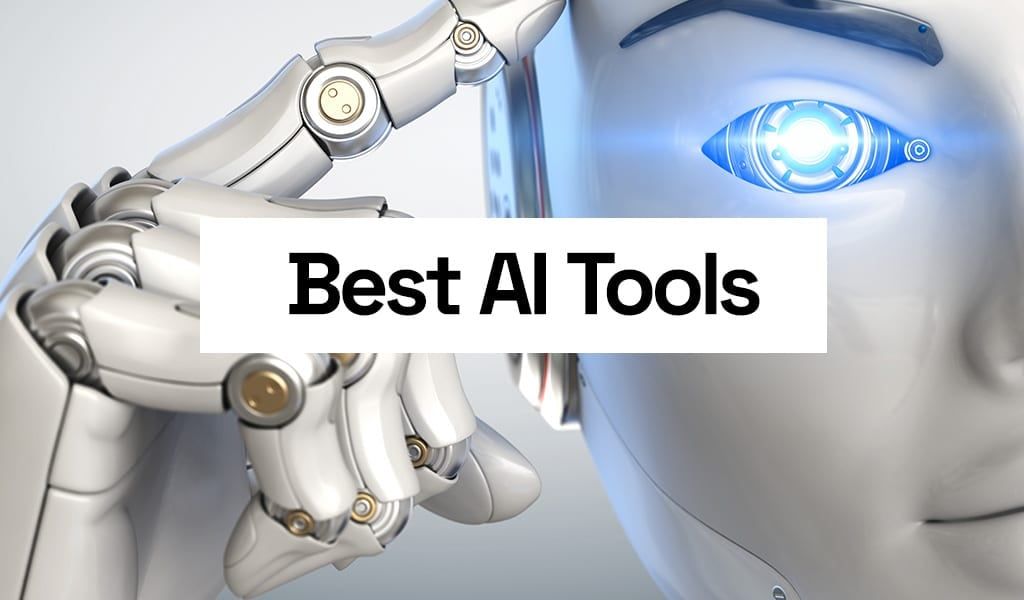n today’s fast-paced digital landscape, the content creation process has undergone a dramatic transformation. With the emergence of sophisticated AI tools, marketers, content creators, and businesses alike are now empowered to produce high-quality, engaging content with impressive speed and efficiency. This article delves into the revolutionary impact of AI in content creation, examining its evolution, benefits, challenges, and future prospects. By exploring recent advancements and drawing on current industry insights, we aim to provide a comprehensive guide that not only informs but also serves as a valuable resource for anyone looking to harness the power of artificial intelligence in their digital marketing strategy.
The rapid evolution of artificial intelligence over the past decade has been nothing short of groundbreaking. Initially, AI was largely confined to repetitive, data-driven tasks, but it has since matured to encompass complex functions such as natural language processing (NLP), creative writing, and even strategic planning. The integration of AI into content creation workflows has unlocked a myriad of opportunities, enabling creators to produce articles, blogs, social media updates, and even multimedia content that is both contextually relevant and highly engaging.
Historically, content creation relied heavily on manual research, ideation, and writing—processes that were not only time-consuming but also prone to human error and bias. Traditional methods demanded significant investments of time and resources, often delaying the delivery of important messages and reducing overall efficiency. Today, AI-driven platforms have revolutionized this space by automating key aspects of content generation while also enhancing the quality of the final product. By leveraging advanced algorithms and machine learning models, these tools can analyze large datasets, discern trends, and generate content that is optimized for SEO and user engagement.
One of the primary factors contributing to the surge in AI adoption is the increasing importance of search engine optimization (SEO) and the ever-growing competition for online visibility. Google AdSense and other advertising networks rely heavily on content quality and relevance. As a result, high-performing articles must not only be informative but also engage the target audience, thereby driving traffic and boosting ad revenue. AI tools such as GPT-based models are at the forefront of this revolution, offering unparalleled capabilities in generating unique, engaging, and context-aware content that ranks well on search engines while also delivering high user satisfaction.
Moreover, artificial intelligence has enhanced content personalization to an unprecedented level. In a digital environment where one-size-fits-all content no longer works, AI allows creators to tailor their messages to specific audiences. By analyzing user data, browsing habits, and preferences, these platforms can produce content that resonates with individual readers, thereby increasing engagement and conversion rates. For instance, AI-driven personalization engines can dynamically adjust website copy, blog topics, and even product descriptions based on user behavior patterns, resulting in a much more personalized experience.
The benefits of AI in content creation extend far beyond just efficiency and personalization. Modern AI tools facilitate a more strategic approach to digital marketing, enabling creators to develop content that is not only relevant but also anticipatory of market trends. By constantly monitoring social media trends, news updates, and competitor activity, AI-driven content platforms can provide real-time insights into what topics are resonating with audiences and how best to optimize content for maximum impact. This proactive approach ensures that businesses remain agile, adapting their messaging promptly to meet shifting market dynamics and capitalize on emerging opportunities.
To gain a clearer understanding of how AI is reshaping content creation, it is useful to examine several of the core functionalities offered by these advanced tools:
A. Content Ideation and Topic Generation
AI-powered platforms analyze search data, social media trends, and user engagement metrics to suggest relevant topics that are highly likely to perform well. This data-driven approach not only reduces the guesswork involved in content planning but also ensures that every piece of content aligns with audience interests.
B. Automated Draft Creation
Modern natural language models have the ability to generate fully formed drafts, saving countless hours that would otherwise be spent on initial content creation. These drafts can then be further refined by human editors to ensure that the final output meets the desired tone, style, and factual accuracy.
C. SEO Optimization
Beyond generating content, AI tools are engineered to optimize articles for search engines. This includes keyword integration, meta descriptions, content structure, and internal linking strategies, all designed to improve organic search rankings.
D. Multilingual Capabilities
With globalization at the forefront of digital expansion, many AI tools now offer robust multilingual support. This allows brands to effortlessly produce content in multiple languages, thereby expanding their reach to international audiences.
E. Performance Analytics and Improvement
After content publication, AI platforms continue to add value by tracking performance metrics and providing actionable insights. This continuous feedback loop enables ongoing optimization and enhancement of content strategy.
A critical aspect of AI-driven content creation is its ability to adapt and learn. Through machine learning algorithms, these tools continuously refine their outputs based on user interactions and feedback. As more data is collected, the AI becomes increasingly effective at predicting what type of content will resonate with its audience. This iterative process, often referred to as reinforcement learning, ensures that the quality of content improves over time, thereby supporting long-term marketing strategies.
Furthermore, the application of AI in content creation has spurred significant advancements in creative expression. The use of sophisticated language models means that content is not only grammatically correct and structurally sound but also engaging and innovative. Creators can now experiment with different narrative styles, tones, and formats without the inherent risk of producing subpar content. The freedom afforded by AI tools enables businesses to maintain a dynamic online presence, continually evolving their content to meet the changing needs of their audience.
From an operational standpoint, the economic advantages of AI-powered content creation are substantial. By automating repetitive tasks, businesses can reallocate human resources to higher-value activities, such as strategy development and creative innovation. This reallocation of resources not only cuts down operational costs but also accelerates the time-to-market for new ideas and campaigns. In an era where speed is of the essence, the ability to rapidly produce and disseminate content is a critical competitive advantage.
In addition to driving operational efficiency, AI tools have a profound impact on revenue generation via platforms like Google AdSense. High-quality, SEO-optimized content naturally attracts higher organic traffic, leading to increased ad impressions and click-through rates. When combined with personalized content strategies, the result is a significant boost in advertising revenue. This symbiotic relationship between content quality and monetization is a key driver of the widespread adoption of AI in content marketing.
However, while the benefits are substantial, the adoption of AI in content creation is not without challenges. One of the primary concerns is the potential for homogenization of content. As more creators rely on similar AI tools, there is a risk that the digital landscape could become saturated with generic content that lacks unique voice or perspective. To mitigate this risk, it is imperative that human creativity and editorial oversight remain integral to the content creation process. By combining the strengths of AI with human ingenuity, businesses can ensure that their content remains both innovative and authentic.
Another challenge involves the ethical considerations surrounding AI-generated content. Issues such as data privacy, intellectual property rights, and the potential for misinformation need to be addressed. As AI continues to evolve, regulatory bodies and industry leaders must work together to create frameworks that ensure responsible use of these technologies. Transparency in how AI-generated content is produced and the sources it draws upon will be crucial in building trust with audiences and maintaining the integrity of digital content.

In light of these challenges, several best practices have emerged for effectively leveraging AI in content creation:
A. Maintain a Human-in-the-Loop Process
While AI can generate impressive drafts and insights, human oversight is critical to ensure quality and originality. Editors and content strategists must be involved in the refinement process to add nuance and depth that algorithms may overlook.
B. Focus on Data Transparency and Ethics
It is essential to be clear about how AI is being used in content generation, including the sources of data and the methods used for analysis. Maintaining transparency not only builds trust with your audience but also aligns with emerging regulatory standards.
C. Embrace Continuous Learning
AI technologies are rapidly evolving, and staying current with the latest advancements is key to maintaining a competitive edge. Regular training and upskilling of teams involved in content creation can help bridge the gap between human creativity and machine efficiency.
D. Invest in Quality Assurance
Implement rigorous quality control measures to regularly assess and improve the performance of AI-generated content. This includes both automated checks and manual reviews to ensure that the output consistently meets high standards.
E. Foster Collaboration Between Teams
Encourage collaboration between data scientists, marketers, and creative professionals. An integrated approach that harnesses diverse expertise can lead to more innovative and effective content strategies.
F. Experiment with Different Formats
Beyond written content, explore how AI can be used to create multimedia elements such as videos, podcasts, and interactive graphics. A diversified content strategy can better capture the attention of varied audience segments.
G. Prioritize User Experience
Ultimately, all efforts in content creation should be driven by a focus on delivering value to the audience. Utilize AI to enhance user experience, whether by personalizing content, improving website navigation, or providing relevant recommendations.
Looking ahead, the future of AI in content creation appears exceptionally promising. Emerging trends point to an era where AI not only supports but also enhances every stage of content production. Innovations such as real-time content adaptation, augmented reality (AR), and virtual reality (VR) integration are on the horizon, promising to further blur the lines between digital and physical experiences. As AI systems become increasingly sophisticated, the possibility of true conversational content—where articles, videos, and interactive media are tailored on-the-fly based on user interaction—moves closer to reality.
Research into sentiment analysis and contextual awareness is advancing rapidly, offering new insights into audience behavior and preferences. By analyzing emotional responses and engagement levels, AI can help brands craft narratives that resonate on a deeper, more personal level. This heightened level of understanding will empower marketers to deliver content that is not only relevant but also emotionally compelling, fostering stronger connections between brands and their audiences.
One of the most exciting prospects in the realm of AI-driven content creation is the potential to democratize content production. In the past, creating high-quality, professional-grade content was often beyond the reach of small businesses and individual creators, primarily due to resource constraints. Now, with affordable and accessible AI-powered tools, virtually anyone can produce content that rivals that of large enterprises. This leveling of the playing field is a major boon for innovation and diversity in the digital space.
Additionally, the integration of AI into content management systems is streamlining workflows and reducing time spent on administrative tasks. Features such as automated content scheduling, performance tracking, and analytics integration allow creators to focus more on strategy and creativity. This holistic approach to content management not only improves efficiency but also ensures that content remains aligned with broader business goals and market trends.
The impact of AI on content creation is also evident in the rise of personalized marketing strategies. As businesses collect more data on customer behaviors and preferences, AI algorithms are able to create highly targeted content that speaks directly to individual needs. For example, an e-commerce platform might use AI to generate personalized product descriptions and recommendations based on a customer’s previous purchases and browsing history. Similarly, content hubs and blogs can dynamically adjust topics and formats to better fit the evolving interests of their readership. This level of personalization is key to driving higher engagement and conversion rates in today’s competitive online environment.
The relationship between AI, content creation, and digital advertising is symbiotic. High-quality content fuels search engine rankings and user engagement, which in turn leads to higher advertising revenues on platforms like Google AdSense. As AI-generated content becomes more prevalent, advertisers are also gaining access to more refined targeting options. These options, powered by deep learning algorithms, analyze myriad factors such as demographic data, user behavior, and online trends to deliver ads that are remarkably relevant and effective. This alignment between content strategy and advertising not only maximizes revenue but also enhances the overall user experience, creating a virtuous cycle of growth and engagement.
Despite all these advantages, organizations must remain mindful of the potential pitfalls associated with over-reliance on automation. A balanced approach that integrates human creativity with AI efficiency is essential for long-term success. Businesses should view AI as a powerful tool that complements, rather than replaces, the human touch. In practice, this means fostering an environment where collaborative efforts between creative teams and AI systems lead to a mutually beneficial exchange of ideas and innovations.

As we look toward the future, several emerging trends hold significant promise for further revolutionizing content creation. One such trend is the integration of blockchain technology with AI-driven content platforms. Blockchain can provide verifiable proofs of authenticity and prevent fraudulent content practices, ensuring that the digital content ecosystem remains secure and trustworthy. Moreover, the marriage of blockchain with AI opens up new avenues for monetizing digital content, such as through microtransactions and content licensing models that reward creators fairly based on engagement metrics.
Another promising development is the growing emphasis on sustainability and ethical AI practices. With increased scrutiny on data privacy and responsible technology use, companies are prioritizing the development of AI tools that not only deliver superior performance but also adhere to strict ethical standards. Initiatives focusing on reducing the environmental impact of AI through energy-efficient algorithms and greener data centers are gaining traction, reflecting a broader industry commitment to sustainable innovation.
The convergence of AI and edge computing is yet another advancement that is set to transform content creation. By processing data closer to the source, edge computing minimizes latency and enhances the real-time capabilities of AI systems. This development is particularly relevant for applications that require immediate content adaptation, such as live streaming events, interactive digital experiences, and dynamic ad placements. As these technologies continue to evolve, they promise to deliver an even more seamless and responsive user experience.
In summary, the rise of AI tools in content creation represents a fundamental shift in the way businesses approach digital marketing. By combining data-driven insights with creative ingenuity, AI is not only streamlining the content creation process but also enabling marketers to deliver more personalized, engaging, and ethically-produced content. While challenges such as content homogenization and ethical considerations remain, a balanced approach that leverages both human creativity and AI efficiency can mitigate these risks and foster a new era of innovation.
The future holds immense potential for those who are willing to embrace these technological advancements. Companies that invest in cutting-edge AI tools and foster a culture of continuous learning and experimentation will be well-positioned to capitalize on emerging trends and secure a competitive advantage in an increasingly crowded digital landscape. As AI continues to evolve, the boundaries between human and machine creativity will blur, paving the way for content that is richer, more insightful, and ultimately more impactful.
To conclude, the transformative power of AI in content creation is undeniable. From enhancing operational efficiency and improving SEO to fostering deeper audience engagement and driving ad revenue, the benefits of AI technology are multifaceted and far-reaching. As organizations continue to navigate the complexities of the digital age, embracing AI tools represents not just an opportunity, but a necessity for staying relevant and competitive. With continuous advancements and a commitment to ethical practices, the AI revolution in content creation is set to reshape the digital landscape for years to come.











